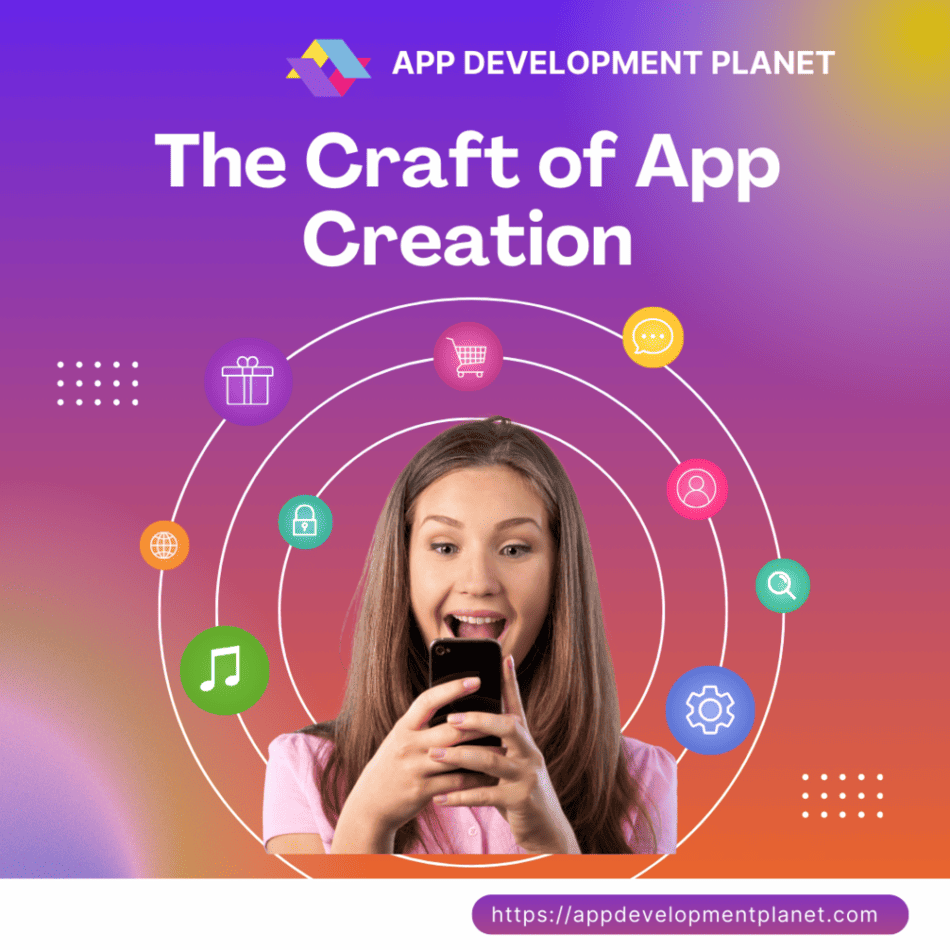
In our world filled with technology, applications that give you easy access to almost everything have become far too common in our daily lives. Need to call your relative from miles away? You can dial their number and call them on your phone. Needing a ride home but have no one to pick you up? You can book a ride with a stranger. Applications today can do anything that you need for everyday life.
But have you ever thought about how people created these wonderful apps? How can people turn ideas in their thoughts into actual working applications that we rely on today? It’s through the magic of app development!

What exactly is app development? In this article, we will talk about uncovering the art and science behind crafting these digital apps that we solely rely on in our everyday lives. Whether you’re just learning app development, an aspiring one, or just curious about how things work, this article is for you.
App Development at a Glance
At a glance, app development can be compared to being an art and a science. Art because apps usually begin with ideas and the passion one might have to will that idea into existence. It is also a science because of how methodical one must be during the process of creating it and have the technical capability to deliver it.
It is a combination of creativity and technology, where both must be in harmony to be able to produce something meaningful. It’s the fusion of imagination and technical expertise that allows us to do the aforementioned tasks with ease.
Types of Tools for App Development
- Integrated Development Environments (IDEs): This is where the coding will take place and it is important to make sure that the IDE matches with the type of application. Some IDEs might have no capability of creating a certain type of application, so make sure that the IDE that will be used is compatible with the application being created.
- Programming Languages: The programming language will be the most important aspect of the application’s code. Some languages may provide more benefits than others like better options for security for example.
- Version Control Systems (VCS): Version control systems are used to track changes in your code and make it easier to troubleshoot a problem when having a problem with the coding. If you’re in a team, it can also be used for easier collaboration among different team members.
- Database Systems: The database will be like memories or the storage shed of your application. All the important information about your application will be stored in this system. This is where your application will input and output data.
These are the most common types of tools that one will need when developing an app. It might include more depending on the scope of the app but these four are the foundations of app development.
Types of Apps
There are different types of apps in the space of app development. What differs between all of them is the space that they’re going to be used in and the types of tools that will be used in developing them. Here are some of them:
1.) Desktop Applications
These apps are what we usually use on our laptops or personal computers. Desktop applications are mostly used for personal and office work. They range from games to word-processing applications. There is no doubt that this is the second most used type of application only second to mobile applications.
Tools for developing desktop applications include:
- IDEs: For the IDE, Visual Studio can provide a simple and comprehensive suite of tools for coding and creating a desktop application. There are other options like Eclipse but Visual Studio is a great place to start with its helpful features and capabilities.
- Programming Languages: If you ask different developers what language they use for desktop applications, they will most likely give different answers. In terms of programming languages, no one answer is correct as there are lots of options to choose from.
Python is the most common language used in desktop applications. Python is very easy to understand and can be used to create more complex applications in the hands of a very skilled developer. - Version Control Systems (VCS): In almost all of the types of applications, Git will be the most common VCS used in the space. It is very efficient and easy to use. It can also be integrated with different IDEs. So don’t be surprised if all of the types of applications listed will have a recommended VCS of Git.
- Database Systems: The same goes for the database. It purely depends on the type of application that one might be creating. If it will need a large database, a small one, or no database at all.
To name a few exceptional database systems that can be used, there are MySQL, PostgreSQL, and SQLite.
2.) Mobile Applications

These are the most used applications in the world right now. With our generation right now, almost everyone owns a smartphone. At the start of the smartphone boom, there were only a few functionalities that people could do on their smartphones but now, it can almost do anything.
Tools for developing mobile applications include:
- IDEs: Developing mobile applications can be quite tricky as there can be different operating systems that one might need to develop. Two of the most prominent mobile operating systems are IOS and Android.
For Android, the most commonly used IDE is Android Studio. The IDE is very user-friendly and easy to use which makes it a little bit easier to develop an app.
For IOS, Xcode is the go-to. It has many features and tools that can help with whatever application is being created. - Programming Languages: If we’re talking about Android development, Java is the official language for Android. It provides flexibility and a countless array of libraries that one may need for the application.
For IOS, Swift will be the main language to be used. As it is created by Apple themselves, it is very easy to integrate it into Xcode which will be the main IDE for IOS development. - Version Control Systems (VCS): Again, Git is highly recommended for developing mobile applications. Even though different VCSs can be used, nothing will beat the efficiency and ease of use of Git.
- Database Systems: As mentioned before, it will depend on the app that one might create. But if a database is needed, MySQL or SQLite can be used for Android while Firebase is recommended for IOS. Firebase provides many features like real-time data synchronization which would be great to use in mobile applications.
Conclusion
In conclusion, app development is a meticulous craft that requires a careful selection of tools and an understanding of the different types of applications. Whether it’s a desktop or mobile application, the choice of the IDE, programming language, version control system, and database system is critical. The dynamic world of app development continues to evolve, and with it, the tools and languages, promise an exciting future for both developers and end-users.
Recent Posts
If you're looking to start developing a mobile application and don't know what application OS to develop, then you've come to the right place. Among the leading platforms, Android and iOS dominate...
Knowing what IDE to use when you are just starting or planning to develop an app yourself is one of the common questions one might ask themselves. Advanced developers will just tell you that it's...
